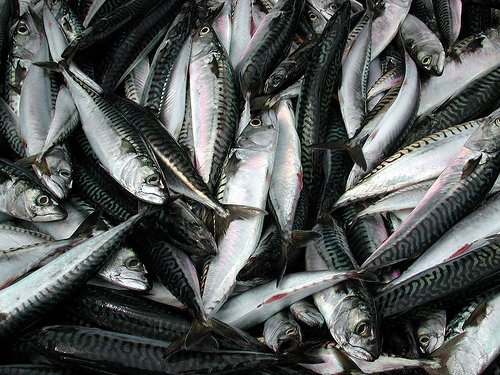Mailbag: The Postprandial Debate – Supplements From Sea

Mailbag: Supplements From Sea
Q: I think we have a few too many ‘nutrition experts’ in the family! Last time we got together we had seafood, and afterward the Big Debate was about which is best; fish oil, salmon oil, krill oil, or cod liver oil. I couldn’t keep up with all the crosstalk about mercury and omegas, and all the technical details. Could you straighten me out on which is best, or at least give me something that will settle this so they can argue about something else next time?
Gratefully,
Sylvia A.
Whitestone, NY.
A: Those four supplements have a lot in common but there are distinct differences too; there really is no ‘best’ one without knowing what criteria the questioner has in mind.
All four of those supply important nutrients called essential fatty acids, in particular omega-3 EFAs known as DHA and EPA which are sorely lacking in most diets (although your seafood dinner may have provided some). As a ballpark figure, most people should be trying to obtain a daily minimum of 1 gram (1000 mg) of EPA and DHA in combination. There’s practically no way to do that without supplements so, unless you’re an Eskimo on a blubber and seal meat diet, the question then becomes which is the best supplement to use for omega-3s.
Cod liver oil
Cod liver oil may be produced from cod or other commercially harvested groundfish. Cod liver oil provides the lowest concentration of EPA and DHA of these four marine oils, but also provides vitamins A and D, which the others do not. Those are important and useful nutrients too, but they can easily be taken in excess of the body’s requirements, with negative implications for health. So, you don’t want to use cod

Cod, used for food and cod liver oil.
liver oil as your primary supplement source of omega-3s because you’ll likely be consuming too much vitamin A and D by doing so. That doesn’t make cod liver oil any better or worse in our view, it’s just got a different nutritional profile. In fact, it’s a great idea to take fish oil along with some cod liver oil. Cod liver oil softgels are very small and easy to take besides being extremely affordable.
Fish oil.
Fish oil is now available in a range of concentrations making it easily the most straightforward and cost-effective way to get extra omega-3s and cover this all-important nutritional base. But don’t confuse ‘fish oil’ with fish liver oil. Most ‘fish

Mackerel are commonly used to make fish oil
oil’ is actually fish body oil produced from oily fish species, most commonly some combination of sardine, anchovy, menhaden, and mackerel, but also from salmon.
Virtually all the fish oils on the US market have been purified (through molecular distillation and other means) then tested to ensure that heavy metals and other contaminants are either entirely absent or below permissible limits. There are actually far more contaminants in a serving of seafood than a brand-name fish oil softgel. Still, it’s a good policy to stick with well-known brands from companies that specialize in nutritional supplements, not drugstore or supermarket brands.
Salmon oil.
Salmon oil is simply an alternative to fish body oils as an omega-3 supplement. It doesn’t have any nutritional advantages over fish oil or provide any vitamin A or D as cod liver oil does. It’s fine as a fish oil alternative if someone prefers it for any reason, but salmon oil is more expensive on a cost-per-gram basis with respect to the EPA and DHA, so it’s not a popular choice.
Krill oil.
Krill oil, made from the small shrimp-like crustaceans, provides small amounts of DHA and EPA on a more expensive basis than fish oil. But it also provides some

Krill, the source of krill oil.
vitamin A as well as astaxanthin, which is an extremely potent and valuable antioxidant in it’s own right. In this respect, krill oil is like cod liver oil, something that could be used along with, but not in place of , fish oil.



